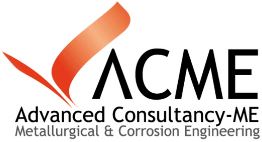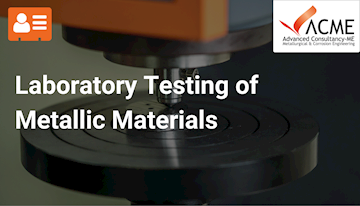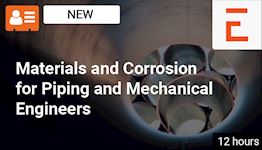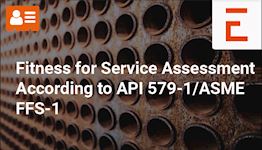Laboratory Testing of Metallic Materials
Laboratory Testing of Metallic Materials
-
Unlimited Team-wide Access
-
Advance Technical Competences
-
Courses by Industry Authorities
Additional
Quotation for your TeamAbout the course
In response to the severe risks associated with material failure in the oil and gas industry, there are stringent regulations and standards regarding material quality, performance, and safety. What are the laboratory testing methods needed to demonstrate adherence to these industry standards? Having personnel who understand these testing methods provides organizations with team members who are familiar with the necessary testing steps, and the required documentation, so as to feed into the efficient selection, maintenance, and performance evaluation of materials.
This course on laboratory testing of materials in oil and gas production provides participants with a comprehensive understanding of the testing methods and procedures used in the industry. It covers various types of materials, testing techniques, and their applications in the oil and gas sector. By covering these key topics, the course provides participants with a comprehensive understanding of material testing in the context of oil and gas production, equiPiping them with the knowledge and skills necessary for effective testing and evaluation of materials used in the industry.
The course consists of 12hr of live sessions with the instructor. All training content is provided through your EngineeringTrainer account.
Meet your instructor
Instructor
ACME
Materials Science, Metallurgy

Learning Outcomes
After this course, you...• have gained a comprehensive understanding of chemical, mechanical and corrosion testing for metallic materials in the oil and gas industry,
• know the relevant industry standards and design codes applicable for material testing,
• have seen the techniques for chemical composition analysis, and how contaminants and impurities can be detected,
• have seen how NDT can be used for flaw detection and evaluation,
• know how to implement a quality control procedure in laboratory testing,
• understand how the testing documentation should be supplied to demonstrate accuracy, reliability and traceability of the results,
• have the ability to make informed decisions regarding material selection, maintenance, and performance evaluation,
• are able to contribute effectively to ensuring safety, compliance, cost• effectiveness, and quality control in the material selection process.
Who should attend this course
Those wanting to understand the procedure and methods for laboratory testing of materials such as:• Engineers and technicians
• Quality control and assurance personnel
• Professionals in procurement and supply chain
Prerequisites
There are no specific prerequisites for this course, as it is designed to cater to participants with a wide range of backgrounds and skill levels, including those who are new to the field.Though having a basic knowledge of materials used in the oil and gas industry, would be advantageous.
Program & Details
-
Introduction to Materials in Oil and Gas production
Live
1. Overview of materials used in the industry.
-
Testing Standards, codes and regulations
Live
1. Relevant industry standards and codes for material testing
2. Regulatory requirements and compliance -
Chemical Analysis
Live
1. Methods and techniques for chemical composition analysis
2. Identification of contaminants, impurities, and corrosive elements -
Mechanical Testing
Live
1. Principles and procedures for mechanical testing (strength, hardness, elasticity, fracture toughness)
2. Equipment and techniques for conducting mechanical tests -
Corrosion Testing
Live
1. Understanding corrosion mechanisms in oil and gas environments
2. Corrosion testing methods and technique
3. Evaluation of corrosion resistance and material performance -
Metallurgical Analysis
Live
1. Microstructure and macrostructure analysis of metallic material
2. Assessment of material quality, defects, and heat treatment processes -
Non Destructive Testing
Live
1. Overview of different NDT methods (radiography, ultrasonic testing, magnetic particle inspection, liquid penetrant testing
2. Application of NDT techniques for flaw detection and evaluation -
Quality Control and Assurance in Material Testing
Live
1. Importance of quality control in laboratory testing
2. Calibration, documentation, and adherence to best practices
3. Ensuring accuracy, reliability, and traceability of test results
Certification

Gain Access to the Course

Why choose EngineeringTrainer?
-
Unlimited Team-wide Access
-
Advance Technical Competences
-
Courses by Industry Authorities
Since using EngineeringTrainer our internal mentorship has a much more matured character.
Logan Chapman - COO at Chapman Consulting Inc.








